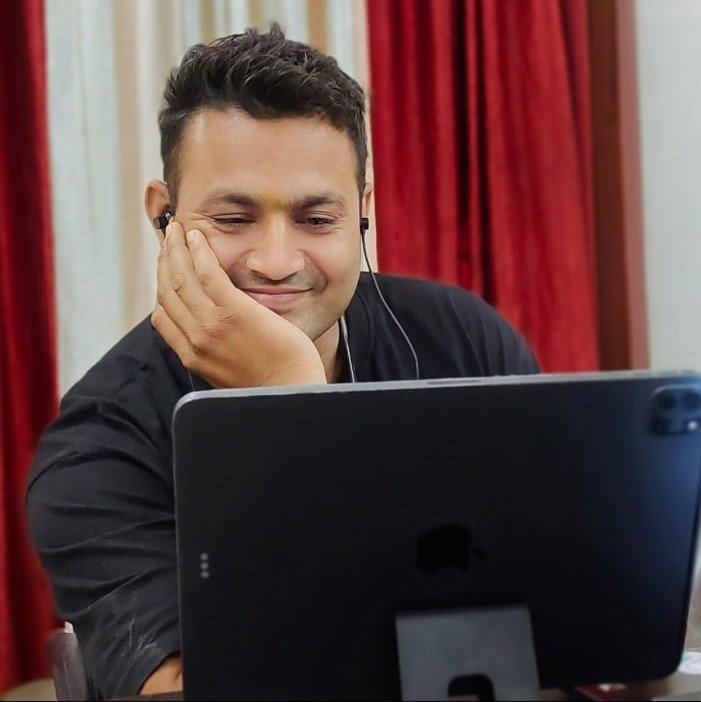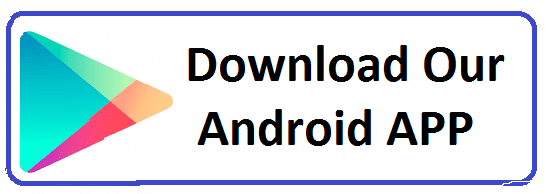Master PHP Back-End Development in Jaipur, Rajasthan with Groot Academy
Welcome to Groot Academy, your premier destination for IT training in Jaipur, Rajasthan. If you're passionate about coding and want to become a proficient back-end developer, our PHP course is designed just for you.
Course Overview:
Are you ready to become a skilled back-end developer with expertise in PHP? Join Groot Academy's best Back-End Development Course with PHP in Jaipur, Rajasthan, and transform your career in the tech industry.
Our course is designed to provide comprehensive training in PHP, ensuring you gain the knowledge and skills required to excel in back-end development. Here’s what you can expect:
- 2221 Total Students
- 4.5 (1254 Rating)
- 1256 Reviews 5*
Why Choose Our PHP Back-End Development Course?
At Groot Academy, we understand the importance of a solid foundation in back-end development. Our course is tailored to equip you with the skills and knowledge needed to excel in the competitive tech industry. Here’s why our PHP back-end development course stands out:
- Comprehensive Curriculum:Our course covers all essential aspects of PHP programming, from basics to advanced concepts. You’ll learn how to build dynamic and interactive web applications that are secure and efficient.
- Expert Instructors: Learn from industry experts who bring years of experience in PHP development. Our instructors are dedicated to providing personalized guidance and support to help you succeed.
- Hands-On Projects: Gain practical experience by working on real-world projects and assignments.
- Career Support: Get access to our extensive network of hiring partners and receive career guidance and placement assistance.
Course Highlights
- Introduction to Web Development: Understand the basics of web development and the role of a full-stack developer.
- Front-End Development: Master React.js, JSX, components, state management, and hooks.
- Back-End Development: Learn Node.js, Express.js, RESTful APIs, and authentication.
- Database Management: Work with MongoDB, Mongoose, and perform CRUD operations.
- Deployment: Deploy your applications on cloud platforms like AWS and Heroku.
Why Choose Our Course:
- Expert Instruction: Our experienced instructors bring real-world knowledge and industry insights to the classroom, guiding you through each concept with clarity and depth.
- Hands-On Projects: Put theory into practice with hands-on projects that simulate real-world scenarios. Develop a strong portfolio that showcases your coding prowess.
- Personalized Learning: We understand that each learner's pace is unique. Our course is designed to accommodate different learning styles and speeds, ensuring you grasp concepts thoroughly.
- Career Relevance: The skills acquired in this course are highly transferable and applicable across various programming domains. Whether you're interested in software development, game design, or application programming, C and C++ form a solid foundation.
Who Should Enroll?
- Aspiring web developers
- Front-end developers looking to learn back-end development
- Software engineers seeking to upskill
- Entrepreneurs planning to develop their own applications
Why Groot Academy?
- Modern Learning Environment: State-of-the-art facilities and resources.
- Flexible Learning Options: Weekday and weekend batches available.
- Student-Centric Approach: Small batch sizes for personalized attention.
- Affordable Fees: Competitive pricing with various payment options.
Enroll Now
Kickstart your journey to becoming a full-stack web developer with Groot Academy. Enroll in the best Full Stack Web Development with NodeJS (MERN Stack) course in Jaipur, Rajasthan, and take the first step towards a rewarding career in tech.
Contact Us
- Phone: +91-8233266276
- Email: info@grootacademy.com
- Address: 122/66, 2nd Floor, Madhyam Marg, Mansarovar, Jaipur, Rajasthan 302020
Instructors

Shivanshi Paliwal
C, C++, DSA, J2SE, J2EE, Spring & Hibernate
Satnam Singh
Software ArchitectA1: In Module 1, you will learn the basics of PHP, including an introduction to its syntax, variables, and data types. Additionally, you will be introduced to PHP's role in server-side development.
A2: No prior experience is required. This module is designed for beginners and will cover foundational concepts in PHP.
A3: Module 1 typically takes about 2-3 weeks to complete, depending on your learning pace and the schedule of the course.
A4: Yes, Module 1 includes hands-on projects and exercises to help you apply the concepts you learn in real-world scenarios.
A5: You will need a text editor (such as Visual Studio Code), a web browser, and PHP installed on your computer. Detailed setup instructions will be provided at the start of the module.
A6: Yes, there will be quizzes and assessments to test your understanding of the concepts covered in the module.
A7: You can get help through our 24/7 support system, which includes live chat, email support, and one-on-one mentoring sessions.
A8: By the end of Module 1, you will have a solid understanding of the basics of PHP, preparing you for more advanced topics in subsequent modules.
A9: Yes, we provide a list of recommended reading materials and online resources to supplement your learning and deepen your understanding of the topics covered.
A10: If you already have a solid understanding of the basics, you can discuss with the course coordinator to see if you can skip Module 1 and move directly to more advanced modules.
A1: Module 2 covers PHP basics including syntax, variables, data types, operators, and control structures. You will also learn about functions, arrays, and error handling.
A2: This module builds on the foundational knowledge from Module 1 by diving deeper into PHP's syntax and functionality, providing more detailed examples and exercises.
A3: Yes, there are practical exercises and coding challenges to help you apply what you’ve learned and build a solid foundation in PHP programming.
A4: Yes, there will be ample support including tutorials, code samples, and Q&A sessions to assist with understanding PHP basics.
A5: Projects will include creating simple PHP scripts, functions, and basic applications to reinforce your understanding of PHP basics.
A1: Module 3 covers advanced PHP techniques including object-oriented programming (OOP), error handling, file manipulation, and working with sessions and cookies.
A2: OOP in PHP focuses on objects and classes, promoting reusability and modular code, while procedural programming relies on functions and procedures to manipulate data.
A3: Yes, hands-on projects will include creating OOP-based applications, working with files, and implementing session management.
A4: Resources include code samples, video tutorials, and documentation on advanced PHP concepts and practices.
A1: Module 4 covers working with databases in PHP, including connecting to databases, performing CRUD operations, and using SQL queries. You'll learn to integrate PHP with MySQL databases.
A2: Projects will involve creating database-driven applications, such as a content management system or a user registration system, to practice database interactions.
A3: Yes, practical exercises on SQL will be included to help you understand how to write and execute queries, and handle data within your PHP applications.
A4: The focus will be on MySQL, but you will also be introduced to other database management systems and their integration with PHP.
A1: Module 5 focuses on web security in PHP. Topics include securing PHP applications, protecting against SQL injection, cross-site scripting (XSS), and session hijacking.
A2: Web security is crucial to protect user data, prevent unauthorized access, and ensure the integrity and confidentiality of web applications.
A3: Yes, practical exercises will involve implementing security measures and best practices in PHP applications to safeguard against common vulnerabilities.
A4: Tools and techniques for security testing, such as vulnerability scanners and secure coding practices, will be covered to help identify and fix potential security issues.
A1: Module 6 provides an overview of popular PHP frameworks such as Laravel and Symfony. You'll learn about the benefits of using frameworks, their architecture, and how they facilitate rapid development.
A2: Understanding PHP frameworks will enhance your ability to develop complex applications more efficiently, leveraging built-in tools and libraries to streamline development.
A3: Yes, practical exercises will include building sample applications using different frameworks to gain hands-on experience with their features and best practices.
A4: Laravel is known for its ease of use and elegant syntax, while Symfony is highly flexible and customizable. Both have unique features and are used based on project requirements.
A1: Module 7 focuses on integrating PHP with APIs. You will learn how to make API requests using PHP, handle responses, and interact with third-party services to fetch or send data.
A2: The module will cover RESTful APIs, SOAP APIs, and how to use PHP libraries to interact with these services effectively.
A3: Yes, practical exercises will involve creating and consuming APIs, including building a sample application that interacts with external services.
A4: You will use PHP libraries like cURL and tools such as Postman to test and debug API requests.
A1: Module 8 covers the process of building and deploying PHP applications. You will learn about application architecture, deployment strategies, and how to host your PHP applications on a server.
A2: Key components include preparing the application for production, configuring the server environment, deploying code, and ensuring proper security and performance optimizations.
A3: Yes, you will work on deploying a PHP application to various hosting platforms, including shared hosting, VPS, and cloud services.
A4: Tools and services such as FTP clients, deployment scripts, and cloud platforms like AWS or Heroku will be used for deployment exercises.
A1: Module 9 covers best practices and optimization techniques for PHP development. Topics include coding standards, performance optimization, and efficient coding practices to enhance the quality and speed of your PHP applications.
A2: Following best practices ensures that your code is clean, maintainable, and scalable. It also helps in avoiding common pitfalls and improving overall application performance.
A3: Key techniques include caching strategies, optimizing database queries, and profiling your PHP code to identify and resolve performance bottlenecks.
A4: Yes, practical examples and exercises will demonstrate how to apply optimization techniques to real-world PHP applications.
A1: Module 10 focuses on integrating PHP with web services. You will learn about web service architectures, such as SOAP and REST, and how to use PHP to consume and interact with these services.
A2: The module will cover both SOAP and RESTful web services, including how to make requests and process responses in PHP.
A3: Yes, hands-on exercises will include creating and consuming web services, with practical examples of integrating them into PHP applications.
A4: Web services enable communication and data exchange between different systems and platforms, allowing for more flexible and scalable application architectures.
A1: Module 11 covers testing and debugging techniques for PHP applications. Topics include unit testing with PHPUnit, debugging tools, and strategies for identifying and fixing issues in your PHP code.
A2: Testing is crucial for ensuring that your code works as expected, catching errors early, and maintaining the overall quality and reliability of your applications.
A3: Tools such as Xdebug and built-in PHP debugging functions will be covered to help you trace and resolve issues in your code.
A4: Yes, practical exercises will involve writing and running unit tests, as well as using debugging tools to identify and fix issues in sample applications.
A1: Module 12 focuses on applying all the skills learned in previous modules to a final project. You'll also work on developing a portfolio to showcase your work and prepare for career opportunities.
A2: The final project will involve building a comprehensive PHP application that demonstrates your ability to integrate various PHP concepts and technologies.
A3: Developing a portfolio allows you to showcase your skills and projects to potential employers, highlighting your practical experience and technical abilities.
A4: Yes, you will receive guidance on resume writing, interview preparation, and leveraging your portfolio to advance your career in PHP development.
Rahul Sharma
Priya Mehta
Amit Patel
Sneha Gupta
Rohit Kumar
Anjali Verma
Vikram Singh
Ritu Kapoor
Neha Sharma
Arjun Desai
Kavita Raj
Rakesh Singh
Ankit Sharma
Rohit Jain
Karan Gupta
Meena Verma
Ajay Kumar
Sanjay Patel
Rohit Sharma
Neha Agarwal
Vikram Singh
Ankita Desai
Meera Sharma
Gaurav Malhotra
Deepak Kumar
Swati Singh
Amit Gupta
Priya Mehta
Get In Touch
Ready to Take the Next Step?
Embark on a journey of knowledge, skill enhancement, and career advancement with
Groot Academy. Contact us today to explore the courses that will shape your
future in IT.


